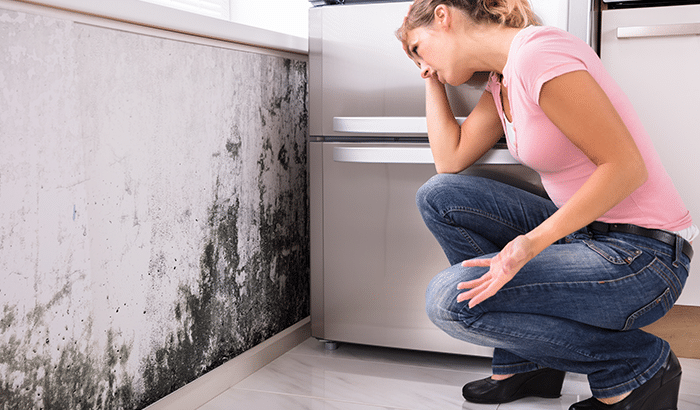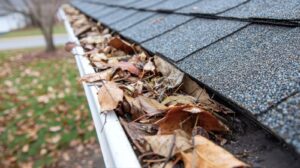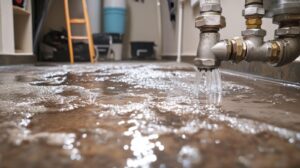We all know mold is bad when it gets indoors, but what are the health effects of mold? Mold is an integral part of the ecosystem when it’s outside where it belongs. It helps break down dead leaves, plants, and trees. If you’re out hiking in the woods, you’ll be exposed to mold, but it probably won’t make you sick.
It’s when mold makes its way indoors that health concerns arise. It can be hard to keep mold out of your home since it thrives in habitats that our homes naturally foster. That’s why it’s so important to keep our homes free from damp, dark places where mold can thrive.
So, how does mold affect us? We’re answering those questions in today’s blog.
Allergies
Everyone is different. Some people don’t have any allergies, while others require medications to keep their allergies under control. So, for some people, mold could grow in your home for months without you noticing anything.
That’s not to say that you’ll never experience symptoms, though. Even if you don’t have allergies, exposure to mold for extended periods can still make you sick.
But if you have moderate to severe allergies, mold growth can cause illness right away from aggravating the symptoms you’re already experiencing.
Asthma
The Centers for Disease Control and Prevention (CDC) have issued warnings concerning mold for individuals with asthma. At its best, you could wind up with a stuffy nose, wheezing or coughing, or having red, itchy eyes. You could contract a fever or feel short of breath at its worst.
Mold exposure has also been linked to asthma development in young children.
Upper Respiratory Illnesses
No one wants any kind of upper respiratory infection. You can feel awful for days and have a cough that lingers for weeks or even months. But unfortunately, indoor mold is related to upper respiratory illnesses, including hypersensitivity pneumonitis and chronic obstructive pulmonary disorder (COPD).
Immuno-compromised Individuals
Do you have a weaker immune system? Conditions like cancer or liver disease can compromise your immune system; so can undergoing chemotherapy treatment. Being immuno-compromised can intensify the mold symptoms you experience.
Treating and Preventing Mold
The health effects of mold can seem scary, especially if you have one of the aforementioned conditions. If you notice yourself experiencing any of these symptoms, you should talk to your healthcare provider.
You can do your part to prevent mold from growing in your home. Mold thrives in damp, dark places. Everyday places like your shower, kitchen sink, and windowsills can all be sources of mold. That’s why it’s essential to keep those areas clean. Doing your best to keep mold out will help you stay healthy.
Black Diamond Restoration
Do you suspect that mold is growing in your home? What if you’re unaware that mold has been growing? Suddenly finding mold in your home can be a shocking experience. And if you’re worried about the health effects of mold, you’ll want to get it taken care of right away.
That’s what Black Diamond Restoration is here for; we treat mold damage every day. Not only do we treat it, but we take steps to keep it away. We’ll also teach you how to prevent it from coming back. We want you to live a healthy life! Contact us today to get started.
toto slot






